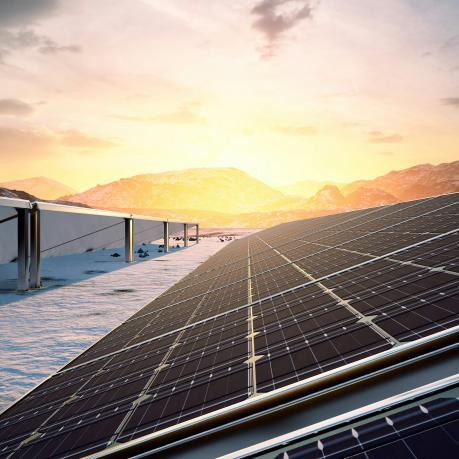
From ambition to implementation: delivering the energy transition and industrial transformation in 2026
Insight by Sandra Ghosh, Susanne Lein
News publ. 08. Dec 2021

How can future hydrogen-importing countries secure their hydrogen import needs? A new analysis looks at Germany’s future need for hydrogen imports, hydrogen import-related risks as well as strategies to secure hydrogen imports.
As the EU strives to secure its energy supply for the next winter, it also must look forward: There is a general agreement that climate neutrality for Germany and the EU will require major imports of hydrogen and derivative products. This will provide new opportunities, but also implies new risks and vulnerabilities. These risks will first affect industrial consumers and later our society as a whole.
This newly released English translation of the study “Securing hydrogen imports for Germany: Import needs, risks and strategies on the way to climate neutrality” was published as part of the ARIADNE project, supported by the Kopernikus Programme of the German Federal Ministry for Education and Research. Its lead author is Raffaele Piria, Senior Advisor and Co-Lead Energy at adelphi research; one of the co-authors is Jens Honnen, an adelphi research analyst.
The study takes a close look at Germany’s future hydrogen import needs. On this basis, it provides a systematic analysis of import risks and a comprehensive package of strategic measures to deal with them. “As Germany moves towards climate neutrality, its energy import needs will drastically decrease. However, it will still rely to a significant amount of energy imports. The risks will change over time – we must prepare for that,” says Raffaele Piria.
By showcasing Germany, this English translation has the aim to provide relevant insights for other future hydrogen-importing countries on the way to climate neutrality. Most qualitative arguments concerning import risks and the strategies to manage them could also largely be applied to these countries. Further, the insights on the German debate provided in this paper may prove interesting to readers from abroad.
Four scenarios show that Germany’s energy import needs will substantially decline, both in absolute terms and as a share of energy consumption. Instead of large imports of fossil fuels and uranium, Germany will import much smaller amounts of climate-neutral energy, mainly hydrogen or its derivatives. The analysis covers not only risks that arise in the future export countries and along the transport routes, but also risk factors in Germany and the EU.
The authors propose a balanced package of strategies to cope with the new risks. Domestic measures include, on one hand, the limitation of hydrogen import needs through energy efficiency, sufficiency and the deployment of domestic renewables and, on the other hand, crisis preparedness to reduce the impact of potential import shocks. The strategy also includes a series of measures to secure the availability, affordability and sustainability of hydrogen imports. A 20th century approach based on intense competition to control energy sources and transport routes would be counterproductive. In the future, energy security will be inextricably entangled with climate policy, which requires a high degree of international cooperation. The authors argue that Germany should closely cooperate with the EU Member States and other future hydrogen importers and exporters.
“Our study shows that new vulnerabilities will arise along with potential competition between hydrogen importers. However, the potential synergies and common interests among them, especially within the EU, are even stronger,” says Piria.
For the English translation of the study, click here.
Contact person: piria adelphi [dot] de (Raffaele Piria).
adelphi [dot] de (Raffaele Piria).